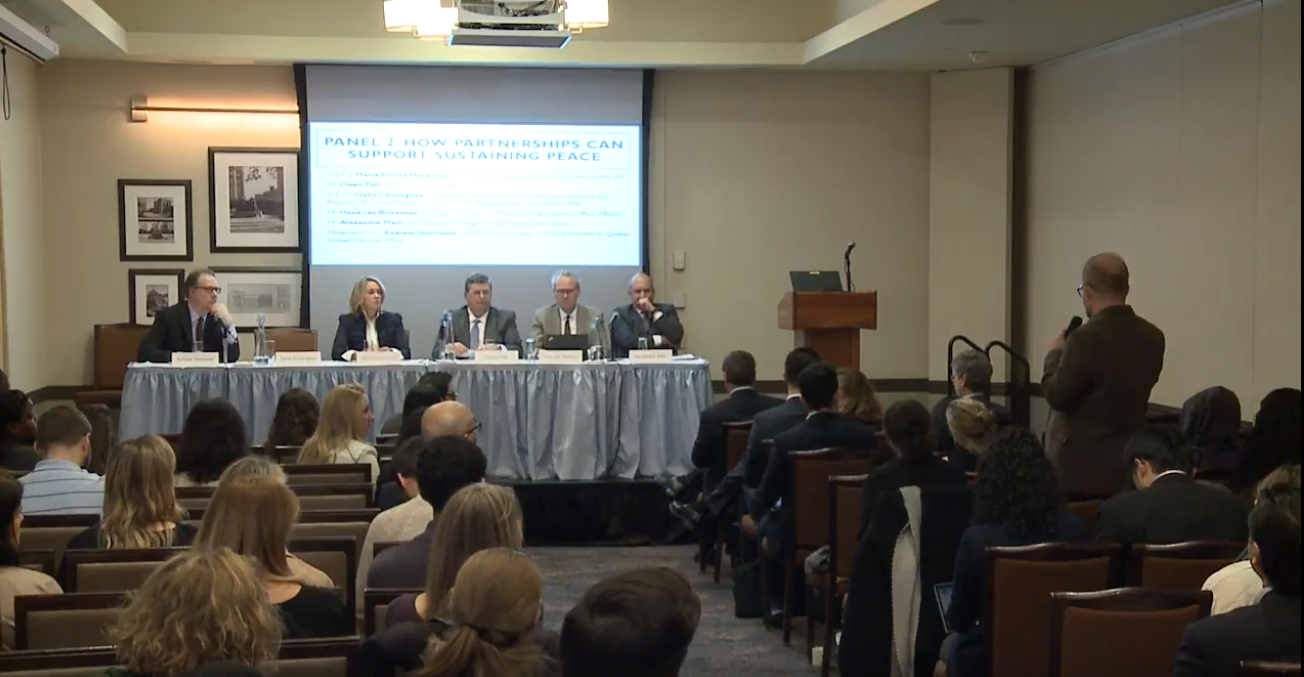“There is no room for complacency when it comes to peace.” H.E. Mr. Miroslav Lajčák, President of the 72nd Session of the General Assembly of the United Nations
Through the adoption of dual resolutions on peacebuilding and sustaining peace in 2016, the UN General Assembly [A/RES/70/262] and UN Security Council [S/RES/2282] committed to a more comprehensive understanding and approach to peace. On 8 December, QUNO cosponsored an event on sustaining peace coordinated in partnership with the President of the United Nations General Assembly’s Office, the UN Sustainable Development Solutions Network (SDSN), the UN Foundation, Global Compact, and New York University’s Center for International Cooperation . The discussion focused on the topics of prevention and partnerships for sustaining peace, and featured experts from civil society, academia, members of the private sector, and UN colleagues. This event served as a first public meeting for the President of the 72nd Session of the General Assembly of the United Nations, H.E. Mr. Miroslav Lajčák, as he moves forward on his “roadmap” for sustaining peace.
In the first panel, participants discussed conflict prevention and sustaining peace, focusing particularly on how different actors can best contribute to the preventive aspects of building long-term sustainable peace. Sharing the perspective of local peace workers on the ground, Bridget Moix, US Senior Representative and Head of Advocacy for Peace Direct, noted that “prevention and peacebuilding need to be locally led, regionally anchored, and internationally supported.” Bridget was also joined by Executive Director and Founder of Camp for Peace Liberia, B. Abel Learwellie who shared his experience working as a peacebuilder in Liberia. Abel shared the work Camp for Peace conducts to engage and empower vulnerable youth populations to help rebuild Liberia.
Given this critical role of inclusivity and partnerships, the second panel focused on how to build such partnerships for peace. The panel was moderated by Andrew Tomlinson of QUNO who opened the discussion by sharing that “peace, justice, and inclusion are at the heart of sustaining peace .” The panelists discussed how new partnership frameworks for peace should move away from crisis response and towards a greater emphasis on prevention and building the resilience of communities. This change is beneficial because in early stages of prevention, a wider range of tools and initiatives are available that are likely to be more cost-effective than the tools necessary for conflict response.
This half-day event was one of many avenues that will be taken to contribute towards developments ahead of the High-Level Meeting on Peacebuilding and Sustaining Peace, which will be held in 2018. QUNO looks forward to continuing to support such efforts, with a particular focus on the need for inclusive, partnership based peacebuilding approaches.
Watch the event here.







